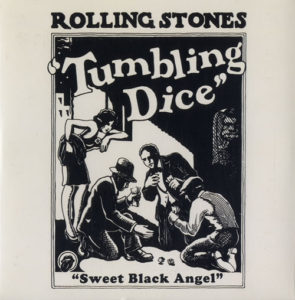
Dante’s hell was a complicated place, as this map by Botticelli suggests. Although Rodney Atkins’ advice “if you’re going through hell, keep on going” appears sound, winding through all the complexities of the ADA and FHA can seem like descending through all nine levels of hell. Nonetheless, I’m happy to act on a temporary basis as Virgil and see how far we can get. No promise about whether we’ll find a Beatrice to take you to Paradise. More


 “Short sharp shock” is too good a phrase not to re-use, as proved by the fact that after its first use by Mary I of England to describe her hope that burning a few protestants would bring others back into the fold and its popularization by Gilbert and Sullivan it turned up in a song by Pink Floyd and as the title of Michelle Shocked’s first album. My use probably won’t get added to the Wikipedia page on the phrase (7) but it suits a discussion of braille gift card litigation and the effect of TransUnion v. Ramirez in ADA litigation.
“Short sharp shock” is too good a phrase not to re-use, as proved by the fact that after its first use by Mary I of England to describe her hope that burning a few protestants would bring others back into the fold and its popularization by Gilbert and Sullivan it turned up in a song by Pink Floyd and as the title of Michelle Shocked’s first album. My use probably won’t get added to the Wikipedia page on the phrase (7) but it suits a discussion of braille gift card litigation and the effect of TransUnion v. Ramirez in ADA litigation. The Rolling Stones famously asked that they be rolled like a pair of tumbling dice, and looking at recent Title III ADA headlines reminded me of just what a crapshoot ADA litigation can be. The good news for businesses is that the district attorneys of San Francisco and Los Angeles have filed suit against the Potter Handy firm and its partners alleging that the firm filed false lawsuits under the ADA.¹ Hard on the heels of the action by the local authorities a federal judge in San Francisco, Vince Chhabria, entered a series of show cause orders requiring the Potter Handy firm and its clients to file sworn declarations providing factual support for their allegations concerning having visited and intending to visit ADA defendants in the future.² I don’t know how Potter Handy and its clients will respond to these orders, or what Judge Chhabria will do with those responses, but within days of these actions a federal judge in San Jose entered an all too typical order allowing a case to proceed despite being more or less identical to those being handled by Judge Chhabria. Sevens or snake eyes, in ADA Title III matters defendants and plaintiffs are at the mercy of the random assignment of judges done with each federal lawsuit filed.
The Rolling Stones famously asked that they be rolled like a pair of tumbling dice, and looking at recent Title III ADA headlines reminded me of just what a crapshoot ADA litigation can be. The good news for businesses is that the district attorneys of San Francisco and Los Angeles have filed suit against the Potter Handy firm and its partners alleging that the firm filed false lawsuits under the ADA.¹ Hard on the heels of the action by the local authorities a federal judge in San Francisco, Vince Chhabria, entered a series of show cause orders requiring the Potter Handy firm and its clients to file sworn declarations providing factual support for their allegations concerning having visited and intending to visit ADA defendants in the future.² I don’t know how Potter Handy and its clients will respond to these orders, or what Judge Chhabria will do with those responses, but within days of these actions a federal judge in San Jose entered an all too typical order allowing a case to proceed despite being more or less identical to those being handled by Judge Chhabria. Sevens or snake eyes, in ADA Title III matters defendants and plaintiffs are at the mercy of the random assignment of judges done with each federal lawsuit filed.  Can the 11th Circuit hold back the tide as King Cnut famously failed to do?² In Laufer v. Arpan LLC, 2022 WL 906511 (11th Cir. Mar. 29, 2022) the 11th Circuit disagreed with the Fifth, Tenth and Second Circuits concerning the injury sufficient to satisfy the standing requirements in Article III of the Constitution. If the case goes to the Supreme Court the 11th Circuit is likely to get its feet wet on Article III standing, but of more interest is the Court’s failure to consider whether the plaintiff had even suffered a statutory injury; that is, did she suffer the kind of injury Title III of the ADA was intended to prevent? If there was no statutory injury then the question of constitutional injury never arises.
Can the 11th Circuit hold back the tide as King Cnut famously failed to do?² In Laufer v. Arpan LLC, 2022 WL 906511 (11th Cir. Mar. 29, 2022) the 11th Circuit disagreed with the Fifth, Tenth and Second Circuits concerning the injury sufficient to satisfy the standing requirements in Article III of the Constitution. If the case goes to the Supreme Court the 11th Circuit is likely to get its feet wet on Article III standing, but of more interest is the Court’s failure to consider whether the plaintiff had even suffered a statutory injury; that is, did she suffer the kind of injury Title III of the ADA was intended to prevent? If there was no statutory injury then the question of constitutional injury never arises.